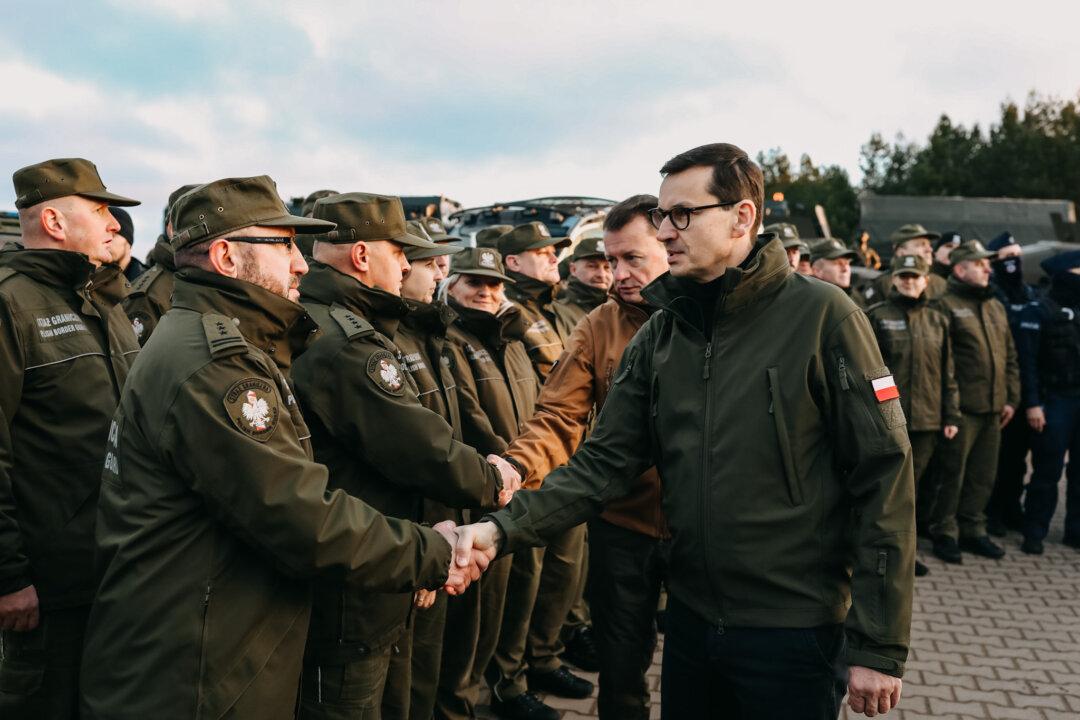Poland, Lithuania, and Latvia are considering asking NATO to hold emergency talks as they struggle to manage a tense migration standoff on their borders with Belarus, the Polish prime minister said on Sunday.

In this handout image provided by the Polish Ministry Of Defense, Polish Prime Minister Mateusz Morawiecki meets border army units at the Belarusian-Polish border as illegal immigrants gather on the border in Kuznica, Poland, on Nov. 9, 2021. Polish Ministry Of Defense via Getty Images

Ella Kietlinska
Reporter
|Updated:



